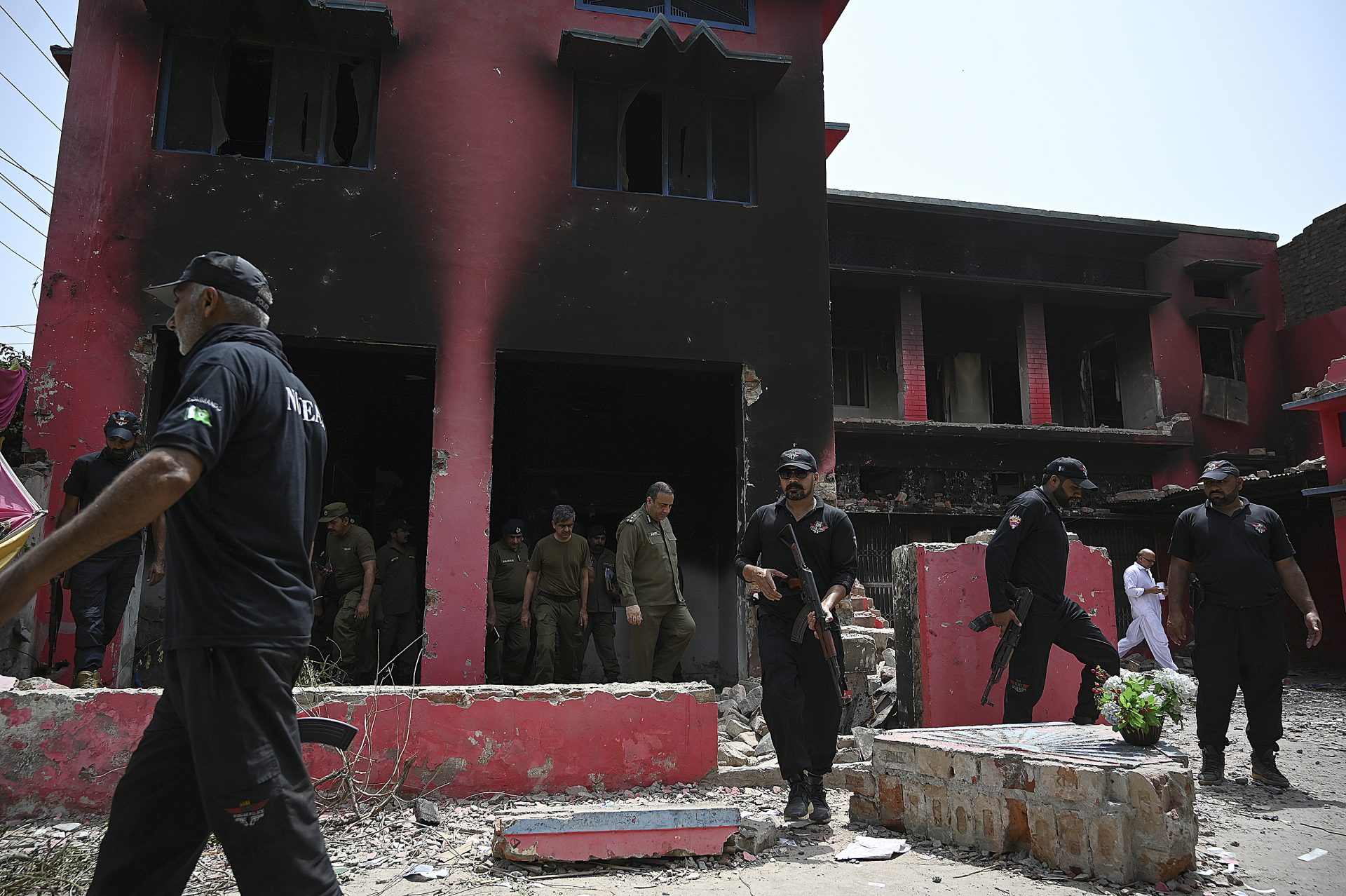August was one of the worst months in recent years for the number of assaults on Christian churches in Pakistan, with dozens of places of worship burned or demolished.
Besides arresting Christians for having allegedly provoked the rioters, the Pakistani police have now found a solution for this crisis and a simple one.
After inspecting an area of Karachi notorious for sectarian conflict, and visiting places of worship of different religions, the police issued on September 10, 2023, the “Security Directions for Churches” (mosques are not mentioned).

The police recommended (or rather orders, since “strict compliance” is required), that “private security guards be deployed outside the main gate of the church along with metal detector equipment.”
The circular also urged churches to deploy private security on the roof bunker and install walk-through gates at the entrances.
The police told the churches to cover their windows with “iron grills” and install CCTV cameras with high-resolution night vision capabilities.
The police promised to keep in touch with the private guards hired by Christians.
The document also added that “all the private guards deployed on the security of church, their information, previous record is to be maintained and checked by the area PS time to time” – a provision that is more about surveilling the private guards than helping them.
What the document said, in so many words, is that the Pakistani police are not capable or perhaps not willing to protect Christian churches.
Christian taxpayers should hire and pay private guards. The police would check who these guards are—perhaps to make sure they are not “too” effective.
Massimo Introvigne is an Italian sociologist of religions who is the founder and managing director of the Center for Studies on New Religions (CESNUR). He is the author of some 70 books and the editor-in-chief of the online magazine Bitter Winter which focuses on religious liberty and human rights in China.
This article was first published by Bitter Winter.
The views expressed in this article are the opinions of the author and do not necessarily reflect the editorial stance of LICAS News.







